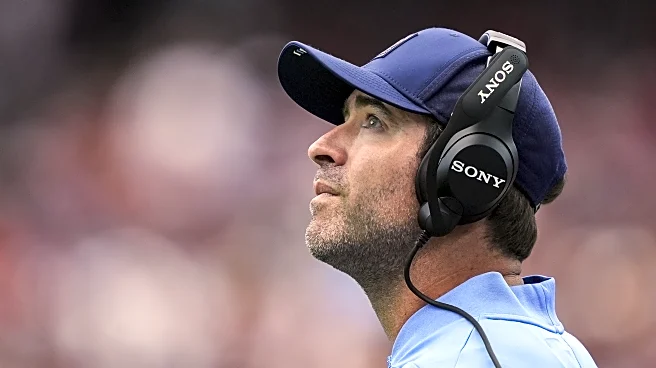Rapid Read • 8 min read
African advocacy groups, including Africa No Filter and Speak Up Africa, have launched a campaign to replace the widely used Mercator map projection with the Equal Earth projection. The Mercator map, created in the 16th century, distorts landmasses by enlarging regions near the poles, such as North America and Greenland, while shrinking Africa and South America. This distortion has led to a misrepresentation of Africa's true size, which is significantly larger than depicted. The campaign aims to encourage schools, international organizations, and media outlets to adopt the Equal Earth projection, which accurately reflects the size of Africa, a continent with over 1.4 billion people. The African Union, comprising 55 member countries, endorsed the campaign, marking a significant milestone.
AD
The campaign to correct the map projection is crucial for addressing misconceptions about Africa's demographic, economic, and strategic significance. The distorted representation of Africa on the Mercator map has contributed to a biased view of the continent's role in the world. By adopting the Equal Earth projection, educational institutions and organizations can provide a more accurate understanding of global geography, which is essential for fostering informed perspectives. This change could influence how Africa is perceived in terms of its potential and importance on the global stage, impacting international relations and economic opportunities.
Following the endorsement by the African Union, the campaign is expected to gain further momentum, potentially influencing more organizations and educational systems to adopt the Equal Earth projection. As awareness grows, there may be increased pressure on tech platforms and map providers to update their default settings to reflect the true proportions of continents. This shift could lead to broader discussions about the importance of accurate representations in media and education, prompting changes in how geographic information is presented globally.
The campaign highlights deeper issues related to historical biases in cartography and their long-term effects on cultural perceptions. The Mercator projection, while useful for navigation, has perpetuated a Eurocentric view of the world, minimizing the significance of regions like Africa. Correcting this bias is not only a matter of geographic accuracy but also an ethical imperative to ensure fair representation. This movement may inspire similar initiatives to address other forms of historical inaccuracies in educational materials and media.
AD
More Stories You Might Enjoy












